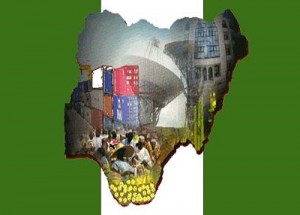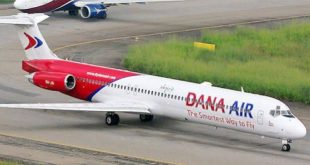With the declining cargo throughput worsened by the new monetary policy on forex exchange, Nigeria has embarked on aggressive drive to woo back Republic of Niger and Chad, among other neighboring landlocked countries to use Nigerian numerous corridors for movement of their transit goods.
Following this, the Federal Government is keen on addressing bottlenecks to the facilitation of transit trade through the Nigerian corridors such as fundamental transit policy issues, infrastructural development and trade facilitation through inter-ministerial, inter-agency collaborations and public private partnership (PPP).

To consummate the plans through problem identification, awareness creation and preferring solutions, a one-day workshop on facilitation of transit trade in Nigeria was organized by the Federal Ministry of Transport which has been championing bilateral negotiations through the Nigeria-Niger Joint Commission for Cooperation (NNJC). Niger shares boundaries with seven states and some local governments in Nigeria.
Speaking at the workshop with the theme: “Promoting Transit Trade for Greater Economic Integration of Landlocked Countries intoInternational Trade”, the Head of Service of the Federation, Mr. Danladi Kifasi noted that the peculiarities of transit trade appears to be shrouded in security, making it difficult for people including the regulatory agencies to properly situate the transactions and procedures involved in handling the trade, adding that this made awareness creation very important. The workshop took place last week in Abuja.

According to the Executive Secretary and Chief Executive Officer (CEO) of Nigerian Shippers’ Council (NSC), Barr. Hassan Bello,in his speech at the workshop, “transit cargo can help boost cargo throughput in our ports, thereby further reducing the transport cost of our own international trade.

“Moving transit cargo through our ports will help achieve economies of scale and attract more transport operators, leading to a favorable cycle in which higher trade volume will drive more efficient transport operations resulting in lower transport costs and more competitive conditions for trade.
“In addition, investment opportunities will increase with regards to infrastructure development and other ancillary services such as freight forwarding, insurance and banking will also receive a boost with multiplier effects on our national economy”, Bello highlighted.
According to the World Bank record, Geography contributes to the development challenges facing many landlocked developing countries (LLDCs). An inland location frequently results in high transaction costs, with logistics costs accounting for 30 percent of the Gross Domestic Product (GDP) of LLDCs, double that of other emerging economies and three times that of developed countries.
Niger shares about 1,500km of a coastline of about 800km with Nigeria, which automatically provides her access to the sea.
The Nigerian corridor used to be the primary access to the sea for the Niger and Chadian economic operators before some challenges emanated in 1996. The situation however, was compounded by the concession of the port in 2006 which made no special provisions for transit goods as was the case under public operations of the ports.
But Bello, whose agency is playing the facilitatory role added, “we are however glad to state that significant milestones have been recorded in the quest to bring Niger transit trade back to the Nigerian corridor as a result of continuous bilateral engagements and inter-agency consultations on the issue. These include several trade mission, the last being that of the Nigerian port concessionaires to sensitize Niger economic operators in Maradi in January 2013; signing of the Memorandum of Understanding (MOU) on Niger Council for Public Transport Users (CNUT) representative office in Lagos in November, 2014 in Abuja and engagement with the Nigeria Customs Service which led to the removal of some bureaucratic hindrances to the speedy release of transit cargo at our ports.”
On the volume of trade on transit, the Secretary General of Nigeria-Niger Joint Commission for Cooperation, Amb. Abubakar Abduljalili said, “We are talking about many corridors, not one but we are still trying to create an avenue to record the trade because as we speak the trade is informal. The volume of trade has not been determined. We want to ascertain how many comes into Nigeria and how many leaves Nigeria to Niger. At the same time, we are creating new corridors. Corridors are created in accordance with linkages to states.
“Now, we have Kano, Katsina and Maradi for which we were given $21million in 2012 to create. Sokoto, Zamfara and Kebbi, with one town in Niger; Kano, Daura, Kastsina and Mangaria in Niger.” Abduljalili added.
Participants at the workshop observed that more than three quarter of the trade on these corridors are not registered, while language barrier and currency difference were some of the factors militating against transit trade.
Also noted as challenge are that Niger and Chad, among other countries still facilitate trade manually, even as transparency in documentation of the transit cargo is noted as being a key issue so as to avoid delay.
 MMS PLUS NG – Maritime, Aviation, Business, Oil and Gas News Online Newspaper with coverage in Maritime, Oil and Gas, Aviation, Power and Energy as well as Financial News
MMS PLUS NG – Maritime, Aviation, Business, Oil and Gas News Online Newspaper with coverage in Maritime, Oil and Gas, Aviation, Power and Energy as well as Financial News










